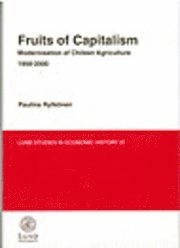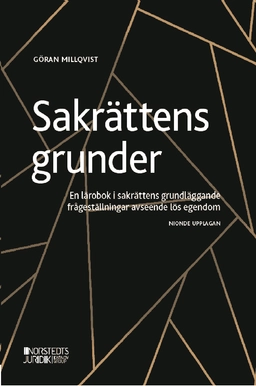

Fruits of capitalism : modernisation of Chilean agriculture 1950-2000
- Utgiven: 2004
- ISBN: 9789122020943
- Sidor: 193 st
- Förlag: Almqvist & Wiksell Internation
- Format: Häftad
- Språk: Engelska
Om boken
Åtkomstkoder och digitalt tilläggsmaterial garanteras inte med begagnade böcker
Mer om Fruits of capitalism : modernisation of Chilean agriculture 1950-2000 (2004)
I oktober 2004 släpptes boken Fruits of capitalism : modernisation of Chilean agriculture 1950-2000 skriven av Paulina Rytkönen. Den är skriven på engelska och består av 193 sidor djupgående information om ekonomi. Förlaget bakom boken är Almqvist & Wiksell Internation.
Köp boken Fruits of capitalism : modernisation of Chilean agriculture 1950-2000 på Studentapan och spara pengar.
Tillhör kategorierna
Referera till Fruits of capitalism : modernisation of Chilean agriculture 1950-2000
Harvard
Oxford
APA
Vancouver



















